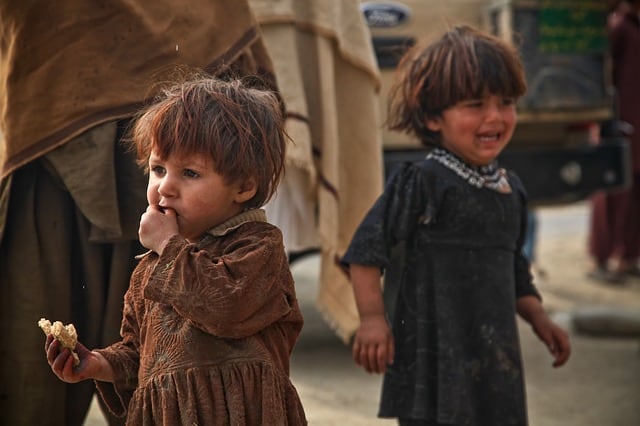The United Nations Children’s Fund (Unicef) has verified more than 170,000 serious violations – including murder, rape, forced recruitment or abduction – of children’s rights in conflict scenarios, the equivalent of more than 45 cases per day, during what has been described as a “deadly decade” for the little ones, the first innocent victims of global conflicts.
UNICEF notes that the number of countries affected by conflict is “the highest since the adoption of the Convention on the Rights of the Child in 1989“, in a world “where wars are getting longer and bloodshed more and more bloody”, said the Fund’s executive director, Henrietta Fore.
“The attacks on children are incessant because the contestants make fun of one of the most basic rules of war: to guarantee the protection of children. For every act of violence against children that generates headlines and provokes cries of outrage, there are many more that are not reported”, said the executive director.
Continuous violence
In 2018, the United Nations documented more than 24,000 serious violations against the rights of children, including murders, mutilations, sexual violence, kidnappings, denial of humanitarian access, forced recruitment and attacks on schools and hospitals.
While this may be partly explained by increased oversight and reporting, the figure remains 2.5 times higher than in 2010. More than 12,000 children were killed or mutilated in 2018, Unicef reports, before condemning without mitigation the continued and widespread use of airstrikes and explosive weapons, such as landmines, mortars, improvised explosive devices, rockets, cluster bombs and artillery shelling, which cause the vast majority of child casualties in armed conflicts.
The attacks and violence against children did not cease in 2019. In the first half of the year, the United Nations documented more than 10,000 cases of violations of children’s rights, although the figures may be even higher.
Heinous months
Unicef is even able to count monthly atrocities. In January, at least 32 children were killed or died in northern and eastern Syria as a result of violence, displacement and winter.
In March, more than 150 people – including 85 children – were killed when an armed group attacked the village of Ogossagou in the Mopti region in central Mali. Another attack in Sobanou-Kou caused 24 child victims.
In June, three children were employed as decoys to detonate their explosive vests in an attack that killed 30 people and wounded another 48 at a community center in the town of Konduga, in the Nigerian state of Borno.
In September, UNICEF reported that two million children still do not attend school in Yemen, and among them, almost half a million dropped out since the conflict escalated in March 2015.
In October, UNICEF found 657 children killed in Syria. A month later, the fund found almost 900,000 Cameroonian children out of school after years of violence in the northwest of the African country.
In early December, five children died when armed men opened fire inside a place of worship in Burkina Faso.
In eastern Ukraine, where almost half a million children suffer the impact of the conflict, 36 attacks against schools were recorded this year, one of which suffered 15 attacks.
And in mid-December, UNICEF reported that an average of nine children were killed or maimed every day in Afghanistan during the first nine months of 2019.
For the last time in the decade, the UN Fund asks “all belligerent factions that fulfil their obligations under International Law and immediately put an end to all violations against the rights of children and stop using them as target civil infrastructure, including schools, hospitals and water facilities”; and asks states with influence over the parties to the conflict to use their power “to guarantee the protection of children“.
24 thousand serious violations of children’s rights were recorded in 2018 alone, including murder, sexual abuse and forced recruitment.
